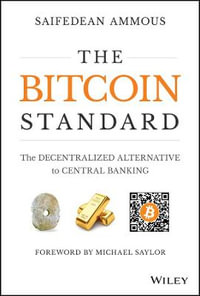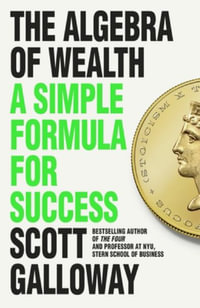Against the background of increasing interest in the changing nature and quality of work, The Political Economy of Work offers a new and unique assessment of the theoretical analysis of work. The author challenges some common preconceptions about work and promotes an original approach to the field, contemplating the nature and development of ideas on work and its impact on human well-being drawing on such burgeoning literatures as the 'economics of happiness'.
Spencer approaches the subject through a careful examination of the history of thought on work over the last three hundred years. A key focus is the development of ideas on work in mainstream economics, starting with the mercantilists and the classical economists, and continuing with neoclassical economists (e.g. Jevons, Marshall). The contributions of modern approaches including the new 'information-theoretic' economics and the new 'economics of happiness' are also discussed. The author sees flaws in the depiction of work in mainstream economics and instead draws insight from the writings of critics of the mainstream paradigm, such as the nineteenth century 'utopian' writers (Godwin, Fourier, Carlyle, Ruskin, Morris), Marx, and the old institutional economists (Commons, Veblen). The alternative approach outlined in the book stresses the barriers to rewarding work under capitalism and develops a case for radical change in the organisation of work.
The book cuts across different disciplinary boundaries and is likely to appeal to researchers in a number of different fields, including labour economics, labour history, the sociology of work, industrial relations, and human resource management. It will appeal to all those who wish to promote a more critical understanding of the role that work can and ought to play in society.
Industry Reviews
"A short review cannot do justice to the quality and the depth of this important book about how economics and its critics treat the subject of work! An extraordinary amount of information is packed into this readable volume. It will be especially useful to students who want a short introduction to the attitudes toward work represented by key historical figures. Essential." --M. Perelman, California State University; CHOICE (July 2009, Vol. 46) "I wish I had written this book. David Spencer has produced a scholarly, lucidly written and totally convincing analysis of the treatment of work in the history of economic thought, from the early Mercantilists right down to the present day. It is a marvellous achievement... This book will become a classic." - J.E King, La Trobe University, History of Economics Review "What can economics tell us about work? To answer this question, David Spencer has investigated the role that work has played in economic theory, from the time of the industrial revolution till the present day. With the surprising range of perspectives he uncovers he delivers a sharp critique to modern-day neoclassical orthodoxy, and to recent theories of happiness at work. This is a deeply insightful book that should oblige labour economists and sociologists to think further about their most basic assumptions." -- Francis Green, University of Kent "Work matters! A timely and highly engaging intervention into contemporary debates on the nature of work and the so-called 'economics of happiness' (why we're not as contented as we could be), Spencer shows us that another conception of work is possible." -- David Harvie, University of Leicester, UK "In The Political Economy of Work, David Spencer uniquely accomplishes three things that are difficult to do in a single text: it introduces economists to important aspects of work that have been neglected in the mainstream economics literature; introduces non-economists to important aspects of work that have been neglected in the literature on the sociology of work (broadly defined); and uses historical analysis to critically assess important examples of contemporary theory (e.g. happiness research). The result is a concise and very readable, interdisciplinary approach to the political economy of work." -- Steve Fleetwood Professor of Employment Relations Bristol Business School, University of the West of England "This book raises fundamental issues around the political economy of work. It does so through comprehensive command of, and yet judicious critical selection from, appropriate contributions from the history of economic thought and radical political economy. As such, it offers an invaluable contribution to the study of work, going beyond current alternatives in both mainstream economics and other subjects such as human resource management." -- Ben Fine, Professor of Economics at the School of Oriental and African Studies, University of London and author of Social Capital Versus Social Theory (2001), The World of Consumption (2002) and co-author of From Political Economy to Economics (2008). "... The book challenges us to create alternative systems of production and different ways of thinking about work and will be of interest not only to economists and social scientists interested in work, but also to anyone interested challenging the scientific status-quo." -- Abby Shenbaum Train, (New Mexico State University) The Social Science Journal
























